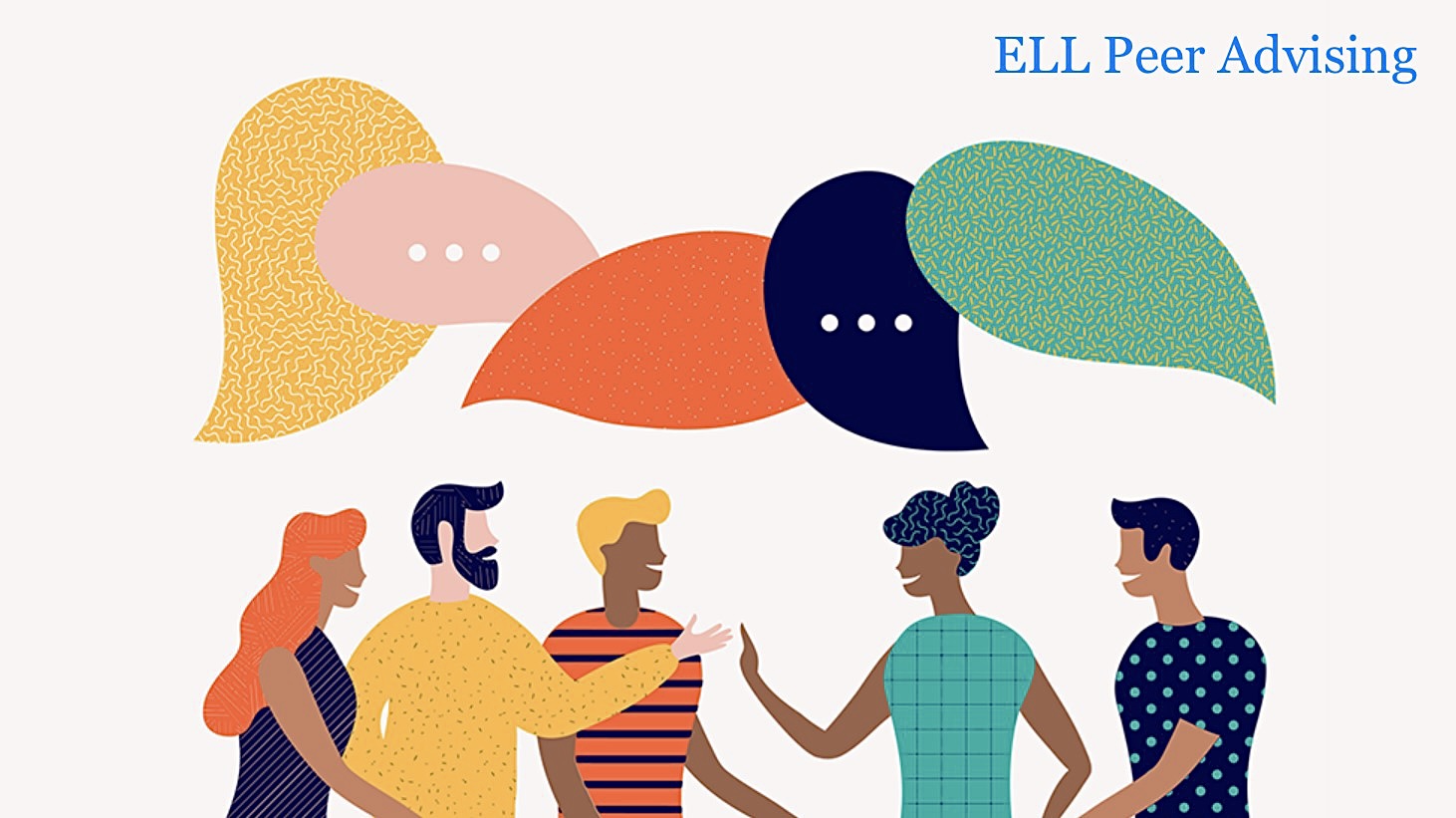Bringing accessible support to international students and English Language Learners with ELL Peer advising
“I really hope as we come out of the pandemic, that the program can flourish and serve a greater need which is much more pronounced now,” shares UTM Professor Jill Caskey.
In 2021, the University of Toronto Mississauga’s (UTM) international student enrolment increased to account for 37 per cent of new students, making international students an undeniable student body. Yet, we sometimes fail to acknowledge the difficulties international students face adjusting, especially when it comes to language. Nonetheless, there are many campus resources designed to help English Language Learners (ELL), one being the ELL Peer Advising initiative. Offered by the Department of Visual Studies, the program provides informal support to English Language Learners.
As an ELL Peer Advisor, I had the pleasure of interviewing Professor Jill Caskey, the chair of the Department of Visual Studies (DVS), to discuss the intentions behind our work and to shed light on an important matter.
We spoke about the nature of an English Language Learner as the term can easily be misinterpreted. “It would be someone who has to study English to master it and deals with perhaps some unease regarding English,” explains Professor Caskey. There is, however, another way of interpreting English Language Learning. According to Professor Caskey, the second, broader definition encompasses even native English speakers wishing to expand, improve, and refine their skills (writing, reading, listening, speaking). In many ways, we are all English Language Learners.
That being said, ELL Peer Advising targets the first category, given that non-native English speakers are less familiar with the language. Alison Syme, the previous chair of the DVS saw the language barriers some students were facing and came up with the idea of ELL Peer Advising in 2015. “We were seeing a lot of international students coming up feeling like we needed to supply more support within the DVS,” notes Professor Caskey.
Although the Robert Gillespie Academic Skills Centre provides resources and workshops, Professor Caskey explains that the DVS used to supply tutorials for ELLs for developing skills related to specific DVS courses. Then came the initiative of having students do the advising. “Alison thought we needed peers to share experience and be sounding boards. Students trust students. Therefore, adding students was a critical piece,” shares Professor Caskey.
In terms of accessibility, the DVS wanted to ensure that meeting an ELL Peer Advisor was not too complicated. Students wanting to speak to an ELL Peer Advisor don’t need to sign up for anything. “We’ve got drop-in hours which are advertised through posters around campus that have a Zoom link. You just have to join the Zoom meeting and wait for an ELL peer advising to let you in. I’ve envisioned the informal drop-ins because the best conversations are the ones that just happen,” explains Professor Caskey.
Further limiting students’ ability to engage in conversations, the pandemic took a toll on students’ social lives. After all, speaking to someone in-person is a great way of learning a language. However, the pandemic deprived students of this opportunity. “It’s been really hard,” admits Professor Caskey, “ELLs missed out on opportunities to have informal conversations in English with their classmates. They have been in lockdown, and not able to socialize. Listening to online lectures is not the same as listening to live lectures. Opportunities to hear and speak English as a live language decreased.”
It does not help that living in an environment where you don’t speak the language well is isolating. Professor Caskey herself has experienced language barriers during her studies. “I know how hard it is. Having studied myself in places where I was not completely comfortable with the language, I know how it is to listen but not be proactive socially when you would be in your own language. When you are young, you worry about being judged. You worry about not speaking as beautifully as your peers,” she shares.
Language barriers not only isolate students, but make it harder for them to form meaningful connections with peers. When struggling to speak English, ELLs can easily shut off and avoid speaking altogether. To other people, this can come off as cold or even distant. Professor Caskey weighs in on this unfortunate reality of language barriers: “Being misunderstood as someone who is aloof [and] judgmental does not help. As a result, you resort to only hanging out with people that speak your language but end up isolating yourself in your own community. For people whose alphabets are different, that’s another part of the environment that they are unfamiliar with because you struggle to read stuff like notes, signs, or even menus.”
When speaking of ELLs, we tend to focus on verbal expression and how we can help ELLs speak better. We forget that difficulties reading another language or another alphabet system are the most hindering. As someone who has also experienced those difficulties, Professor Casey shares, “I have been involved in a couple of international projects, one in China where I experienced an inability to read the environment and just how hard it is to learn basic phrases in Mandarin and Cantonese. It gave me great empathy for Chinese students here.”
As part of the UTM community, we must make a better effort to acknowledge the difficulties international students and English Language Learners face when studying in an Anglophone environment. Although the pandemic had a negative effect on all students, non-native English speakers continue to struggle with English, which impedes on their academic performance, social life, and consequently, their self-esteem. If you are an English Language Learner (or know one) who is struggling, if you want to improve your skills, or if you are seeking advice, consider emailing dvschair.utm@utoronto.ca. Alternatively, for more details about in-person and virtual drop-in hours, please visit the DVS website for updated information.
We hope to hear from you soon. You’ve got this!

